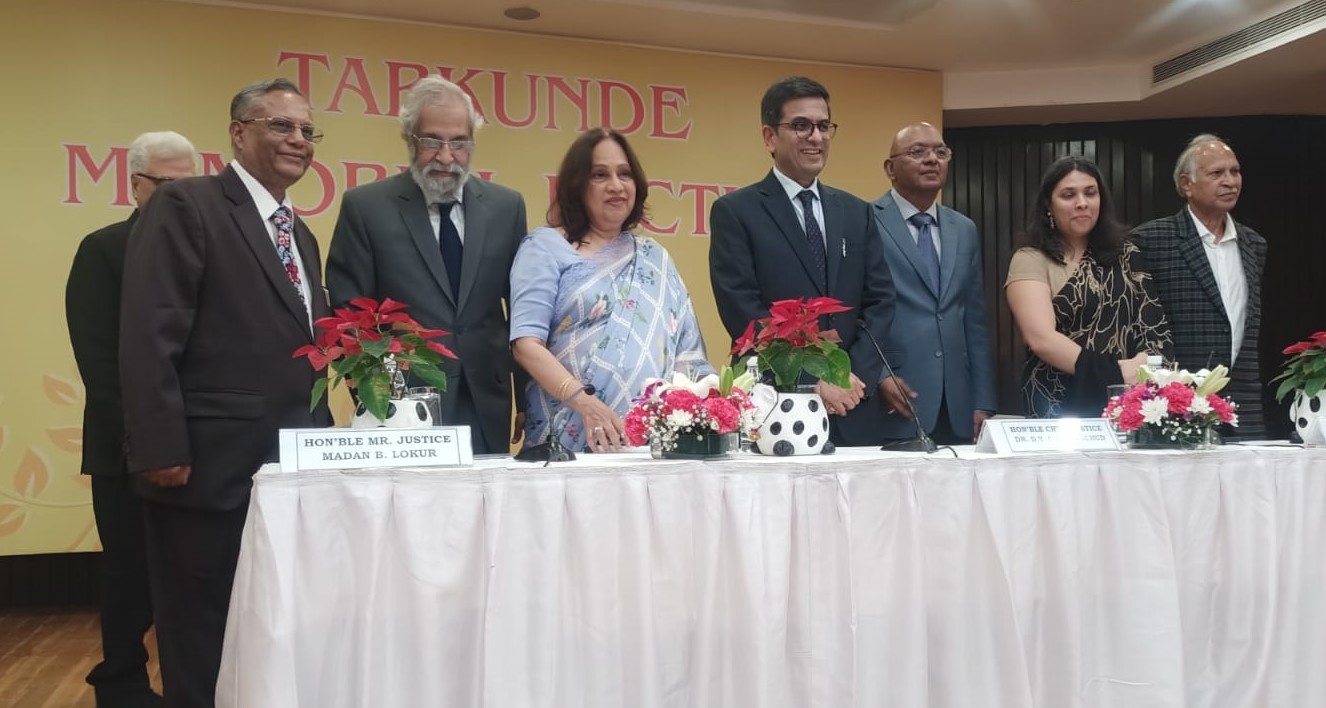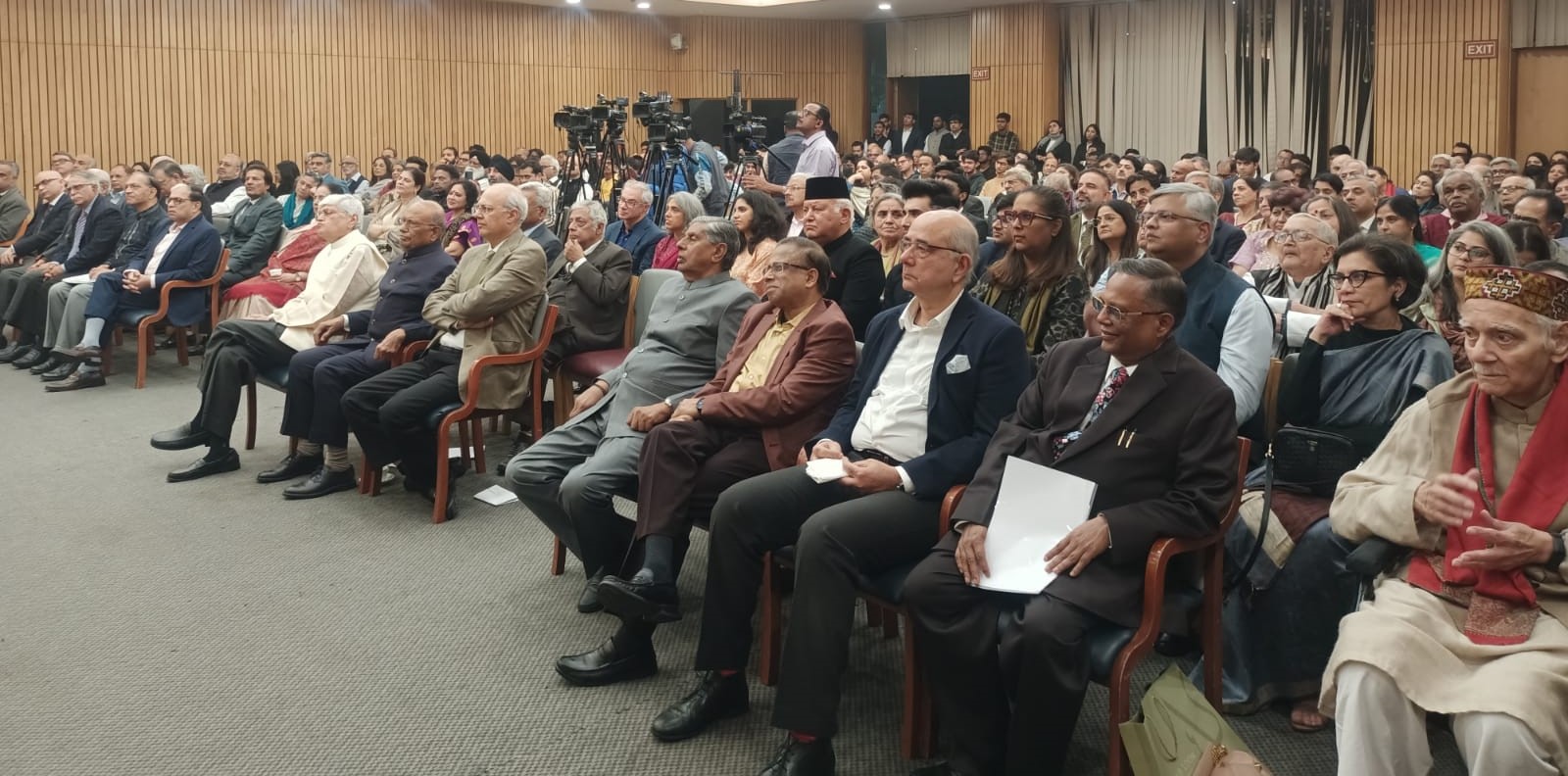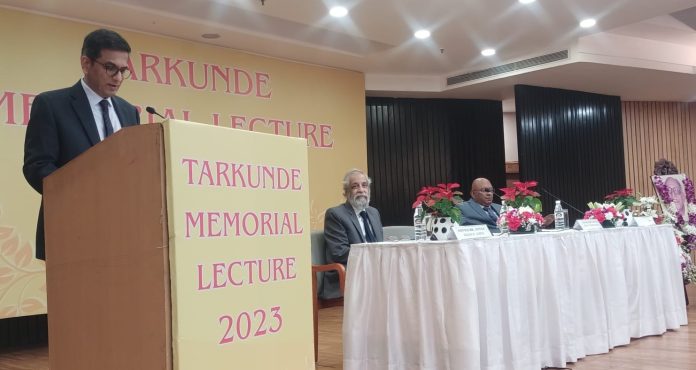Radiance News Service
New Delhi, Dec. 2: Justice Tarkunde challenged established wisdom through his professional career and refused to stoop to the metaphorical powers that be, said Chief Justice of India, Justice Chandrachud while delivering the 14th Justice VM Tarkunde Memorial Lecture on “Upholding Civil Liberties in the Digital Age: Privacy, Surveillance and Free Speech” here Friday.
CJI Chandrachud said, “Justice Tarkunde is regarded as the father of the civil rights movement in India is no surprise. Throughout his life, Justice Tarkunde challenged established wisdom through his professional career and refused to stoop to the metaphorical powers that be.
 “Justice Tarkunde started an organization called the Citizens for Democracy to defend and strengthen democracy. He also formed one of India’s oldest civil liberties organizations called the People’s Union of Civil Liberties (PUCL), setting the stage for India’s deep traditions of civil liberties activism that continues even today. In addition to his legal acumen, Justice Tarkunde was also an ‘iconoclast’, as defined by the late Prof. Shamnad Basheer. The core emphasis of the civil liberties movement, that Justice Tarkunde championed, is mirrored by digital rights activism today. The aim is to curb the abuse of state power and create a space for dissent and democracy to prosper,” said the CJI.
“Justice Tarkunde started an organization called the Citizens for Democracy to defend and strengthen democracy. He also formed one of India’s oldest civil liberties organizations called the People’s Union of Civil Liberties (PUCL), setting the stage for India’s deep traditions of civil liberties activism that continues even today. In addition to his legal acumen, Justice Tarkunde was also an ‘iconoclast’, as defined by the late Prof. Shamnad Basheer. The core emphasis of the civil liberties movement, that Justice Tarkunde championed, is mirrored by digital rights activism today. The aim is to curb the abuse of state power and create a space for dissent and democracy to prosper,” said the CJI.
On the privacy in the digital age, the Chief Justice said, “Privacy in the digital age is not just a matter of data protection. It’s a fundamental right that we must actively champion and protect. The stories of individuals navigating the digital realm, from rural artisans to urban professionals, highlight the myriad ways in which personal data becomes intertwined with our daily interactions. A collaborative effort between policymakers, technology companies, and informed citizens is therefore imperative. Stringent authorization protocols and increased public awareness without compromising ongoing investigation constitute the way forward.
On the spread of misinformation and fake news, he said, “There has been a plethora of discussion in recent times about the consequences of disinformation, the need for a regulatory mechanism and the free speech concerns raised by such legislation or policies. Most criticisms of global anti-fake news legislation are based on concerns that such legislation can be overbroad and prone to misuse, thus restricting legitimate speech as well. Such issues about how to define disinformation and prevent selective misuse are essential.”
“With the advent of troll armies and organized disinformation campaigns across different social media platforms, the fear is that there is an overwhelming barrage of speech that distorts the truth. This epistemological battle of sorts was explained eloquently in the New York Times in 2020 when it said the spewing of falsehoods isn’t meant to win any battle of ideas. Its goal is to prevent the actual battle from being fought,” said the CJI.
On the challenges, he said, “It has been widely reported and recognized by the United Nations that social media was used as a tool for ethnic cleansing in Myanmar by the military and members of civil society. Unlike state actors, who are held accountable by the Constitution and the electorate, social media platforms are relatively unregulated. This is another novel challenge that digital liberties activists have to find unique solutions for.’
 “The civil liberties movement led by humanities like Justice Tarkunde acted as a precursor to a larger narrative, a narrative of digital rights. The very principles Justice Tarkunde ardently upheld are the guiding lights that beckon us in this era of digital transformation. This transformation is not just about technology, it is about the people and their rights,” said Justice Chandrachud.
“The civil liberties movement led by humanities like Justice Tarkunde acted as a precursor to a larger narrative, a narrative of digital rights. The very principles Justice Tarkunde ardently upheld are the guiding lights that beckon us in this era of digital transformation. This transformation is not just about technology, it is about the people and their rights,” said Justice Chandrachud.
On the way forward, the Chief Justice said, “The torch that Justice Tarkunde carried for Justice now illuminates our path towards safeguarding digital freedoms, ensuring that as we travel through this landscape, we do so with the commitment to upholding the basic values of justice, equality and freedom. After all, as the world moves online, our battles to uphold civil liberty must also follow suit.”
Justice Tarkunde was the founding president of Forum for Democracy and Communal Amity (FDCA), started with an objective of promoting communal harmony, justice and democratic values.




